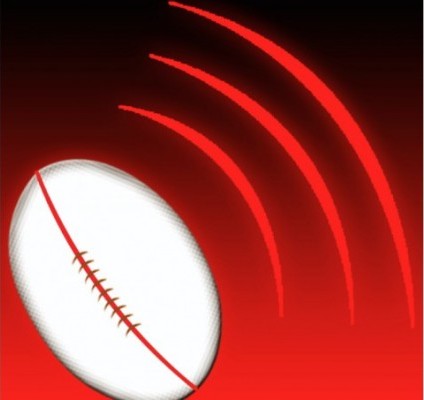Fixing Eligibility Rules Not So Easy
Fixing Eligibility Rules Not So Easy
USA Rugby has made a move that was an attempt to make things fairer - change the rules for graduate students who have college rugby eligibility left so that they can play even if they switch from one undergraduate school to a different school for post-grad study.
That seems fair, doesn’t it?
In fact, the rule change also helps military students and those who leave school for pregnancy, religious mission, or hardship. Such a person can spend his freshman year at State U., then join the Navy, serve for four years, while also still pursuing a degree. He comes back, gets his degree, and enrolls in graduate school somewhere else. With a waiver, he can still play college rugby.
So, that’s nice, right?
But one wonders if graduate students should play at all. Isn’t this rule an extension of the very ill-informed old rule from six or seven years ago that allowed kid who had graduated from high school the previous year to still play high school rugby?
Well, maybe. However, it's worth noting that the NCAA allows graduate students to play sports. You have to be within your five-year window, or you have to have lost significant time due to injury, but you can do it.
It seems, though, this rule rankles in rugby circles. I have fielded several comments from from coaches who don’t like the rules as they are. I know the rules have hurt deserving players - I have seen players denied the chnce to play because they missed time due to military service - but I also know that coaches are very wary of putting 18- and 19-year-old athletes up against 25-year-olds.
USA Rugby changed their eligibility rules in part as a way to police schools (cough, BYU, cough) that had older players on their rosters. The USA Rugby rule starts your eligibility clock the day you graduate high school, and it lasts seven years. You then can play five years in those seven, although you’d have to apply for a waiver for years 6 or 7 to do so.
If you miss time due to religious mission, military, or any other reason, you can make up some of it by applying for those waivers. But if you, say, take a year off, enter college for two years, and then go into the military for four years, you can’t play anymore once you come back.
For the NCAA, the rules are different - the NCAA clock is suspended while you are on religious mission, military service, Peace Corps, or recognized foreign aid services.
So those who don't like USA Rugby's rules find themselves at odds with the way the NCAA does business on one end, and in agreement at the other.
So those who don't like USA Rugby's rules find themselves at odds with the way the NCAA does business on one end, and in agreement at the other.
If we change the rules to ban graduate students, we run into some difficulties. Here’s one: a student doing a 3-2 program to get a master’s in five years might be deemed ineligible after his third year in college, while a student who hasn’t graduated by his 5th year could still play. That seems, on the surface, to be pretty unfair.
What about Life University? What if a college player graduates from State U., and then enrolls in Life’s graduate chiropractic program? He’s a good rugby player, but not good enough, yet, to make the men’s team. He can, as of now, play for the undergraduate team. That follows the rules … if great for that player ... but I bet some of you reading this, including some who support graduate students playing, wouldn't like it.
If we use the NCAA method of halting the Eligibility Clock for military service or religious mission, or foreign aid work, then what you might have is a player in his or her late 20s, even 30, playing college rugby. That has happened in college football, and it happened in college rugby when BYU came back to the national stage. I got a lot of people angry at me for writing about it, but it was the truth - around 2005, BYU and, to a lesser extent, Utah, fielded players in their mid- to upper-20s. They weren’t the only colleges to do so, but the prevalence of the religious mission among their students skewed their student body older.
But should we stop that, and in so doing also penalize military student-athletes? That seems unfair, and it rubs a lot of coaches the wrong way.
So … what if we did this?:
- Seven years to play five, no waivers
- Military service stops your seven-year clock
- Full-time graduate students can play graduate school
- Put the burden of proof on USA Rugby to sit a player down AND put the burden on USA Rugby to do so before a game is played. If USA Rugby officials can't produce cause to sit a player down in time for kickoff, then they don't get backsies.
I don’t know - it’s tough. Coaches want to protect their youngest players, but keeping rugby-loving students off the field seems wrong. Age disparity is an issue, but military service is an honorable thing, and shouldn’t penalize you. Graduate students have graduated, but they are still students, and many are younger than the undergraduates they are playing against.
Coming up with an all-encompassing rule for these issues probably needs a PhD.












